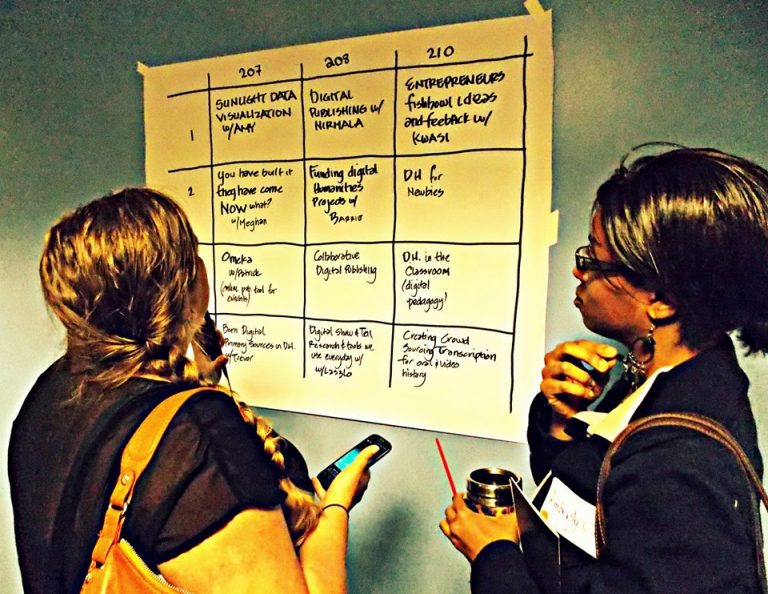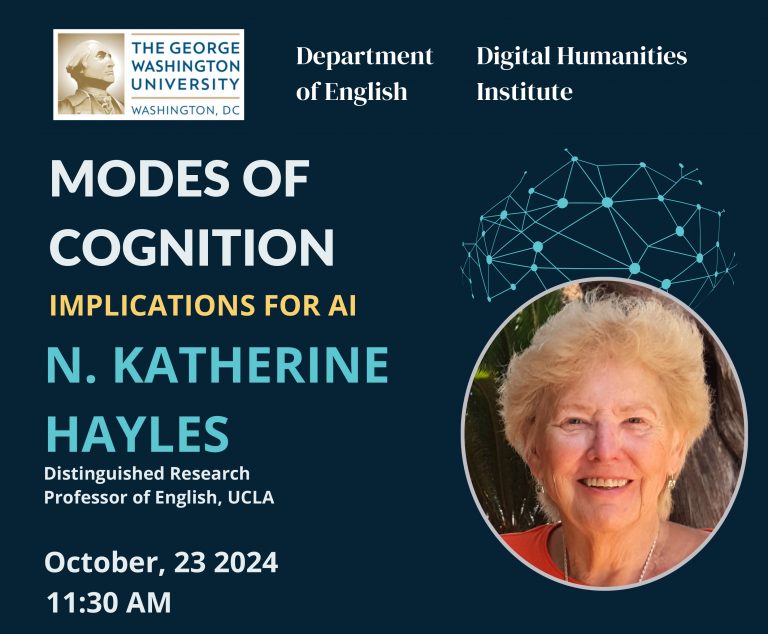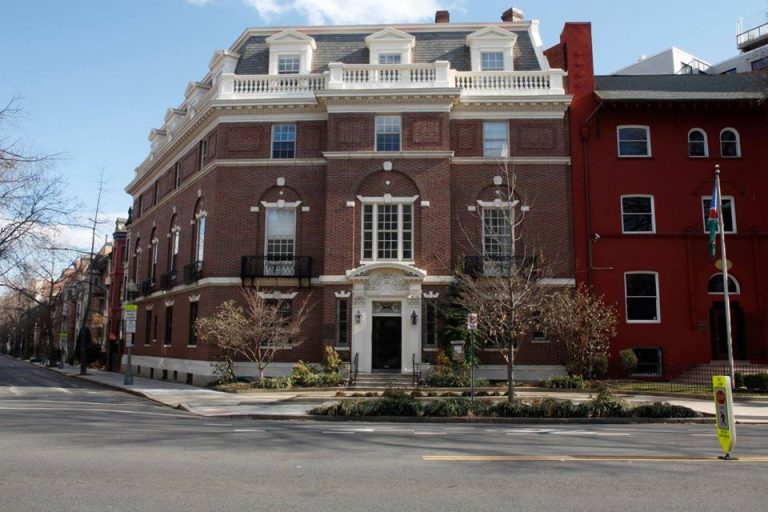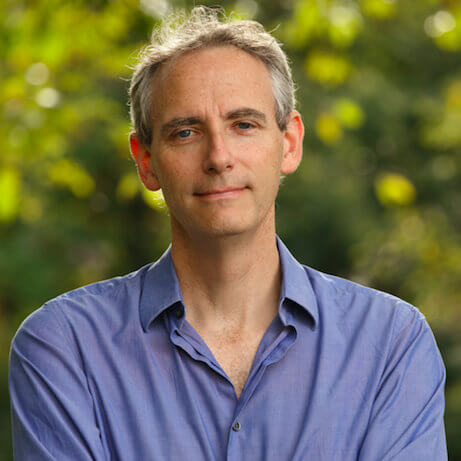Similar Posts

THATCamp: The Humanities and Technologies Camp at GWU
This April, the Digital Humanities Institute at George Washington University helped to sponsor the 2014 THATCamp (The Humanities and Technologies Camp) in Washington, DC. An “unconference,” THATCamp brought together teachers, students, software developers, members from the National Endowment for the Humanities, the Sunlight Foundation, Tech Cocktail, Cuentos, GW Libraries, and scholars from across DC, as well as…

The Craft of Writing in the Age of AI
Generative AI tools stake claims to anonymized, collective authorship through machine-generated texts that are similar to patterns in the datasets they trained on. The notion of authorship faces new challenges of delineating the agency, knowability, and intentionality of written words. Led by Alexa Alice Joubin (English and Digital Humanities Institute) and Kylie Quave (University Writing Program and Anthropology), this session explores our society’s evolving relationship to written words and the future of the craft of writing.

Modes of Cognition by N. Katherine Hayles
Modes of Cognition: Implications for AI Public lecture by Professor N. Katherine Hayles, 11:30 am, Wednesday October 23, 2024 In-person and Zoom hybrid event. Zoom link: https://mit.zoom.us/j/97309041943 Myers Room, George Washington University Museum and Textile Museum, 701 21st St NW, Washington, DC 20052 This event is hybrid: in person and on Zoom. Here is…

RenAIssance Studies: Techne, Technicity, and Artificial Intelligence
In what senses might AI be theorized as a type of RenAIssance technology of re-generation that connects early modern thoughts on mind-body and modern models of ideation? Submit your proposal for our panel on RenAIssance Studies: Techne, Technicity, and Artificial Intelligence at the RSA in Boston, March 20–22, 2025

ANNOUNCEMENT: WORKSHOP SERIES TOMORROW!
The German Historical Institute is hosting a set of hands-on workshops on Thursday, October 20, at their headquarters in Dupont Circle to demonstrate various kinds of digital mapping tools that might be of interest to humanities scholars. There will be four different workshops offered over the course of the day, each about an hour and…

Bruce Holsinger (University of Virginia): “Plagues, Witches, and War: A MOOC Postmortem” (Friday, December 5)
We are very pleased to announce this upcoming public talk! Plagues, Witches, and War: A MOOC Postmortem Bruce Holsinger(Fiction Writer and Professor of English, University of Virginia) Sponsored by the GW Digital Humanities Institute, in coordination withthe GW Medieval and Early Modern Studies Institute, English, and Creative Writing Date: Friday, December 5Time: 7 PM (includes talk followed by Q&A)Place: Marvin…

